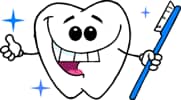
Call Us Today For an Appointment
Address: 1608 Lafayette Ave, Terre Haute, IN 47804
Email: smuddefamilydentistry@yahoo.com
Email: smuddefamilydentistry@yahoo.com
OTHER SERVICES
OTHER DENTAL SERVICES
IMPLANTS
A dental implant
is an option to replace a missing tooth. In this procedure, a small titanium post is surgically implanted into the bone and allowed to set. The bone grows around it, forming a tight connection, which additionally slows or stops the bone loss that occurs when the root of a natural tooth is missing. Once the implant is firmly set in the mouth, the dentist then works to attach the replacement tooth onto the top of the post. This permanent solution has the advantages over bridge work that it does not stress the surrounding teeth for support, and, should the tooth wear out, another can simply be replaced on the post.
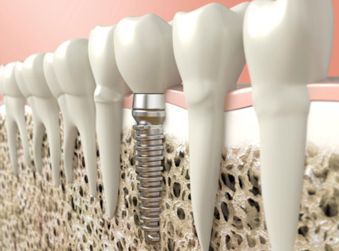
Implants can also be used as support for a bridge. This is an alternative to partial dentures, and has several advantages. First, there is no adjustment period to acclimatize the patient who, once the work is done, only feels teeth, not metal supports intruding into the mouth. Second, this slows the bone loss occasioned by missing teeth. Third, there is no discomfort or difficulty in eating. And, best of all, of course, they don't have to be taken out all the time.
We also offer mini dental implants. These implants are about half the diameter of traditional implants are used mainly to stabilize lower dentures.

Implants can also be used as support for a bridge. This is an alternative to partial dentures, and has several advantages. First, there is no adjustment period to acclimatize the patient who, once the work is done, only feels teeth, not metal supports intruding into the mouth. Second, this slows the bone loss occasioned by missing teeth. Third, there is no discomfort or difficulty in eating. And, best of all, of course, they don't have to be taken out all the time.
We also offer mini dental implants. These implants are about half the diameter of traditional implants are used mainly to stabilize lower dentures.
Implant placements are referred to the Periodontist or Oral Surgeon and the abutment and crown are placed by Dr. Gray at Smudde Family Dentistry.
ROOT CANAL TREATMENT
Root canal treatment (also called endodontic
therapy) is necessary when a cavity becomes so large that it reaches all the
way to nerve (pulp). Regular examinations can prevent and detect these large
cavity problems early. Sometimes deep restorations/fillings or trauma to a
tooth may cause the nerve to be damaged to the point that it needs root canal
therapy. Once this occurs the pulp becomes infected, and can even extend
through the root tip and begin to eat away at the surrounding bone forming an
abscess.
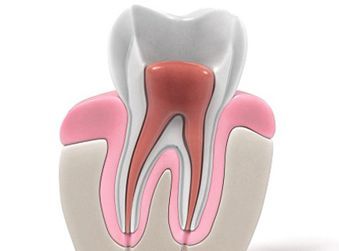
By the time the pulp is infected it must be treated, and cannot heal on its own. It can even weaken the entire immune system. This is dangerous, not to mention very painful. Symptoms that the pulp has become infected may include sensitivity to hot/cold or sweets, pain, swelling, pain to biting or pressure, and a bad taste in the mouth. Sometimes, however, no symptoms are apparent and the person is unaware of any problem until a checkup.
A root canal is then performed to clean out the infected tooth pulp, and disinfect the canals of the tooth. The only other treatment would be to extract the tooth. Once the infection is resolved, the canal(s) are filled in to prevent any further infection. Usually a core build-up and crown is recommended for restoring a tooth that has had root canal therapy.

By the time the pulp is infected it must be treated, and cannot heal on its own. It can even weaken the entire immune system. This is dangerous, not to mention very painful. Symptoms that the pulp has become infected may include sensitivity to hot/cold or sweets, pain, swelling, pain to biting or pressure, and a bad taste in the mouth. Sometimes, however, no symptoms are apparent and the person is unaware of any problem until a checkup.
A root canal is then performed to clean out the infected tooth pulp, and disinfect the canals of the tooth. The only other treatment would be to extract the tooth. Once the infection is resolved, the canal(s) are filled in to prevent any further infection. Usually a core build-up and crown is recommended for restoring a tooth that has had root canal therapy.
EXTRACTIONS
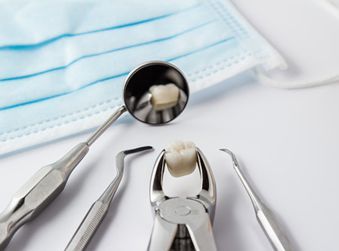
When a tooth is badly damaged from decay, periodontal disease or trauma, an extraction (removal or the tooth) may be necessary. We strive to take good care of our patients during extractions. Patients are also given post-op instructions to help aid in healing.
Replacing missing teeth is also very important as is can lead to changes in surrounding teeth, changes in the patient's bite, and periodontal problems. Be sure to get your options for tooth replacement when you have your tooth extracted.

When a tooth is badly damaged from decay, periodontal disease or trauma, an extraction (removal or the tooth) may be necessary. We strive to take good care of our patients during extractions. Patients are also given post-op instructions to help aid in healing.
Replacing missing teeth is also very important as is can lead to changes in surrounding teeth, changes in the patient's bite, and periodontal problems. Be sure to get your options for tooth replacement when you have your tooth extracted.
NIGHTGUARDS AND MOUTHGUARDS
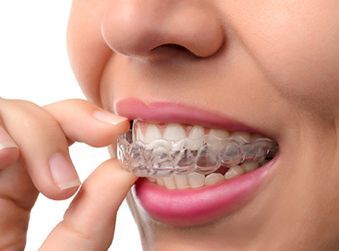
Custom designed mouthguards and nightguards are made of flexible plastic and molded to fit the shape of your teeth. Mouthguards are recommended to protect the jaw and teeth during physical activity and sports such as boxing, football, basketball, or other activities where your mouth may be hit. Nightguards are recommended for patients who clench or grind their teeth during the day or at night as a way to protect their teeth and bite.
If you have decided a guard is right for you, we will take an impression of your teeth from which a custom fitting mouthguard will be fabricated, usually in our office, and delivered to you within a couple of days.

Custom designed mouthguards and nightguards are made of flexible plastic and molded to fit the shape of your teeth. Mouthguards are recommended to protect the jaw and teeth during physical activity and sports such as boxing, football, basketball, or other activities where your mouth may be hit. Nightguards are recommended for patients who clench or grind their teeth during the day or at night as a way to protect their teeth and bite.
If you have decided a guard is right for you, we will take an impression of your teeth from which a custom fitting mouthguard will be fabricated, usually in our office, and delivered to you within a couple of days.
TMJ TREATMENTS
TMD stands for Temporomandibular Disorder. Temporal, as in temple area of skull; mandibular as in mandible, or lower jaw; joint as in it's where the head and jaw meet. Problems in this joint may be caused by a misalignment of the teeth, trauma, or excess muscle tension. Aside from the two bones that meet there, cartilage buffers them and five muscles are involved in the area. If something goes wrong a good deal of trouble can result.
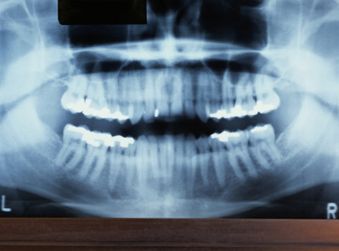
Problems in this area can cause:
- Headaches
- Earaches
- Trouble/soreness in opening and closing the mouth
- Clicking or popping of the jaw
- Pain in the jaw muscles
- Soreness in the area, sometimes extending to the face
Dental treatments for the condition can include removable appliances, replacing missing teeth, moving teeth, adjusting the bite, filling gaps between teeth, etc. There is no one solution that is right for all cases. Sometimes a plastic mouthpiece is used to prevent clenching or grinding that is contributing to the problem or to realign the bite. TMD
(Temporomandibular Disorder) can be very discomforting if left untreated. We offer Botox injections to relax the
muscle contractions that cause TMD.

Problems in this area can cause:
- Headaches
- Earaches
- Trouble/soreness in opening and closing the mouth
- Clicking or popping of the jaw
- Pain in the jaw muscles
- Soreness in the area, sometimes extending to the face
Dental treatments for the condition can include removable appliances, replacing missing teeth, moving teeth, adjusting the bite, filling gaps between teeth, etc. There is no one solution that is right for all cases. Sometimes a plastic mouthpiece is used to prevent clenching or grinding that is contributing to the problem or to realign the bite. TMD
(Temporomandibular Disorder) can be very discomforting if left untreated. We offer Botox injections to relax the
muscle contractions that cause TMD.
Click For Patient Forms
FACIAL AESTHETICS
When you’ve achieved the smile of
your dreams, turn to Smudde Family Dentistry for med spa services. As
a commitment to helping you reflect your inner beauty, Dr. Gray is
certified to administer non-surgical injectibles like Botox® and
Juvederm®. As an accredited member of the American Academy of
Facial Esthetics, an organization designed to expand the skills of
Dentists, Doctors and other medical professionals you can trust that
you’ll love the results.
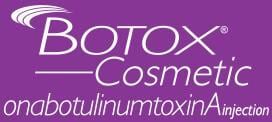
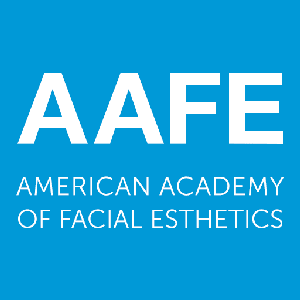

BOTOX® INJECTIONS
Botox, or clostridium botulinum
is
a neurotoxin made from made from botulinum toxin, a naturally
occurring bacterium found the intestines of fish and in the organs of
shellfish. When ingested, the bacterium is responsible for botulism a
condition that causes weakness and paralysis of the nerves. Science
has harnessed its power, purified it, and found its value in a variety of medical
and esthetic functions.
Treat Yourself to Botox
Instead of accepting wrinkles and
crows’ feet as an inevitability, take matters into your own hands.
As one of the most globally popular cosmetic procedures, BOTOX® is
the only treatment that visibly reduce laugh lines and wrinkles.
Smudde Family Dentistry uses FDA-approved BOTOX® and Xeornin, which only
contains refined trace amounts of the botulinum toxin.
JUVEDERM®
Juvederm is made from hyaluronic acid
that addresses the collagen volume loss that makes wrinkles so
prominent. It comes in several formulas that have very specific uses.
Where ever you have wrinkles and lines on your face, there is a
Juvederm® formula that meets your needs. Let Dr. Gray help you
soften laugh lines, frown lines and add volume to your lips.
IT STARTS WITH YOUR CONSULTATION
Schedule your assessment to assess
which filler solution is best for you. If you are ready to get
started with BOTOX® or Juvederm to reduce nasolabial folds,
marionette lines or vertical lip lines, contact us today.
Address: 1608 Lafayette Ave, Terre Haute, IN 47804 | Email: smuddefamilydentistry@yahoo.com
| Phone: 812-466-9826
Business Hours: Mon-Thu 8:00 AM - 5:00 PM





Address: 1608 Lafayette Ave, Terre Haute, IN 47804 | Email: smuddefamilydentistry@yahoo.com
| Phone: 812-466-9826
Business Hours: Mon-Thu 8:00 AM - 5:00 PM





Address: 1608 Lafayette Ave, Terre Haute, IN 47804 | Email: smuddefamilydentistry@yahoo.com
| Phone: 812-466-9826
Business Hours: Mon-Thu 8:00 AM - 5:00 PM





Content, including images, displayed on this website is protected by copyright laws. Downloading, republication, retransmission or reproduction of content on this website is strictly prohibited. Terms of Use
| Privacy Policy
